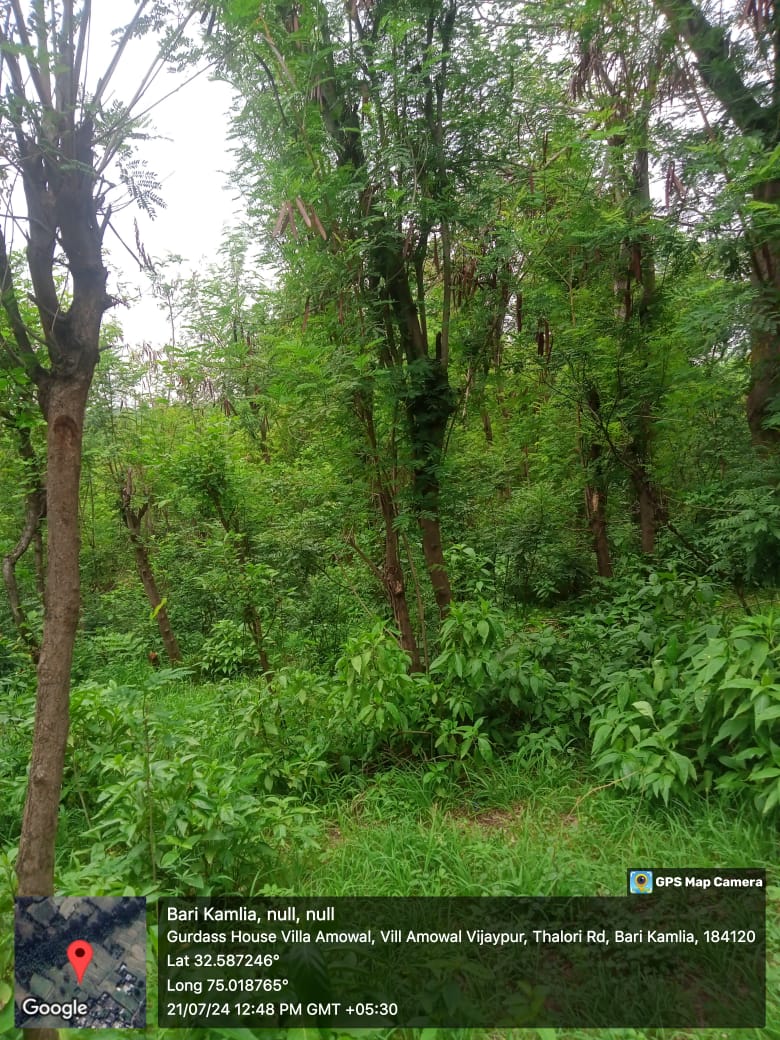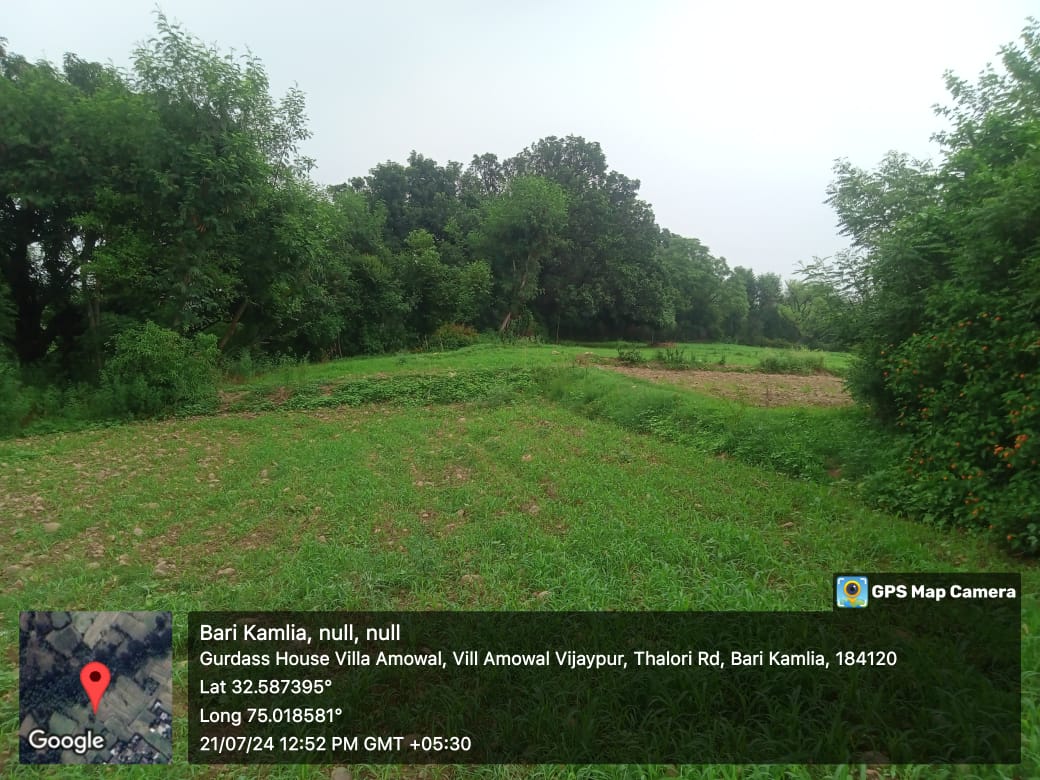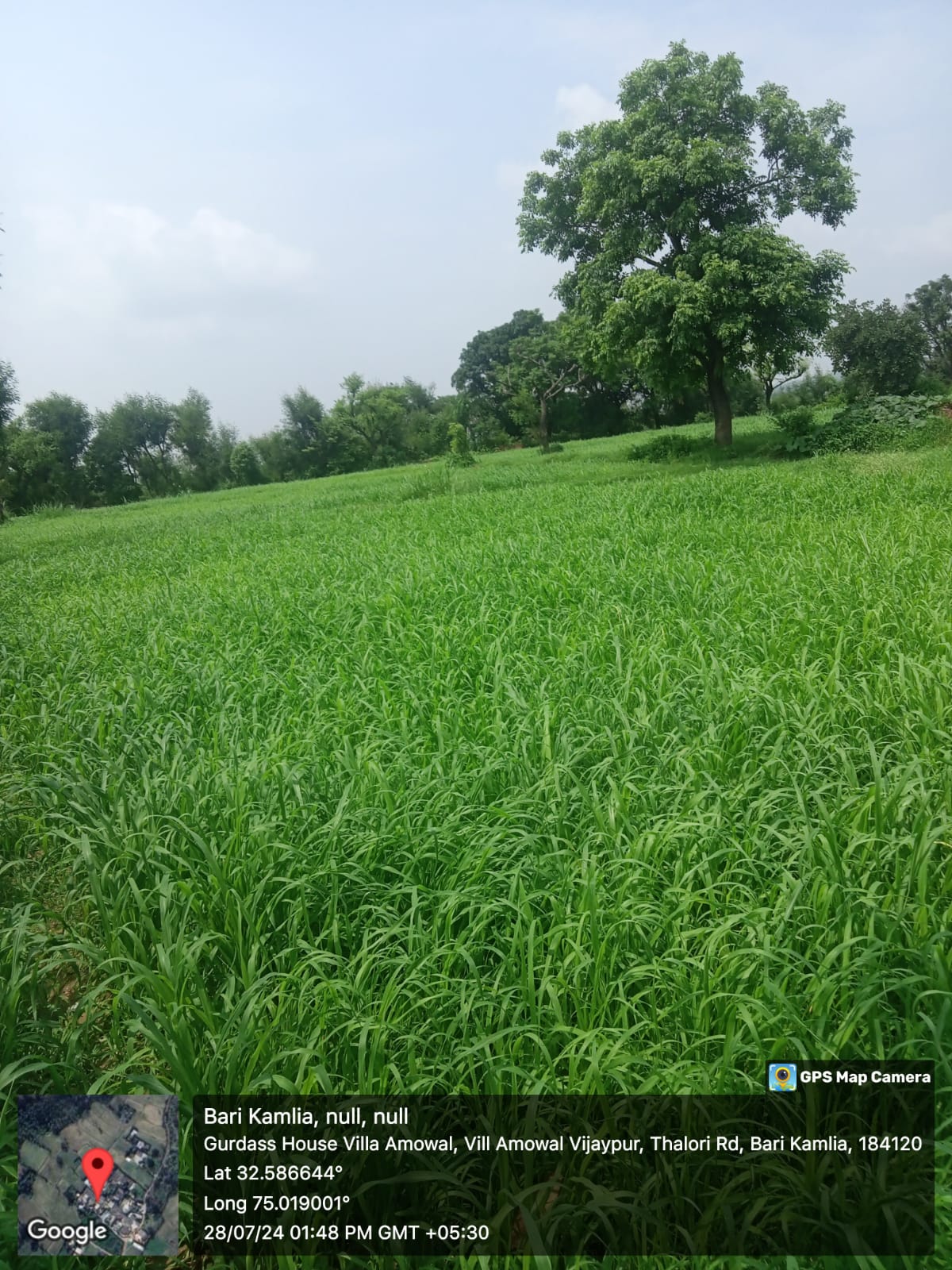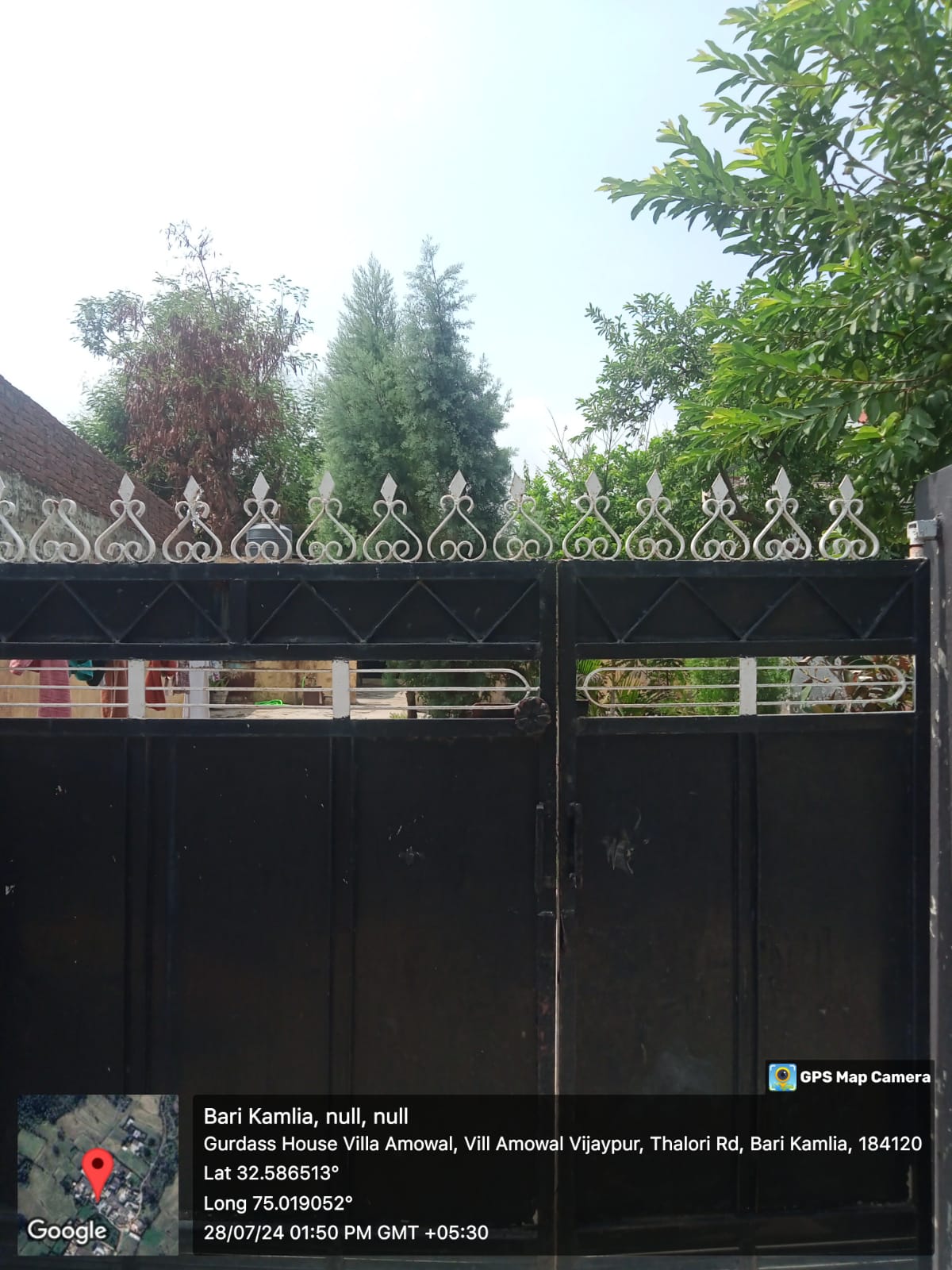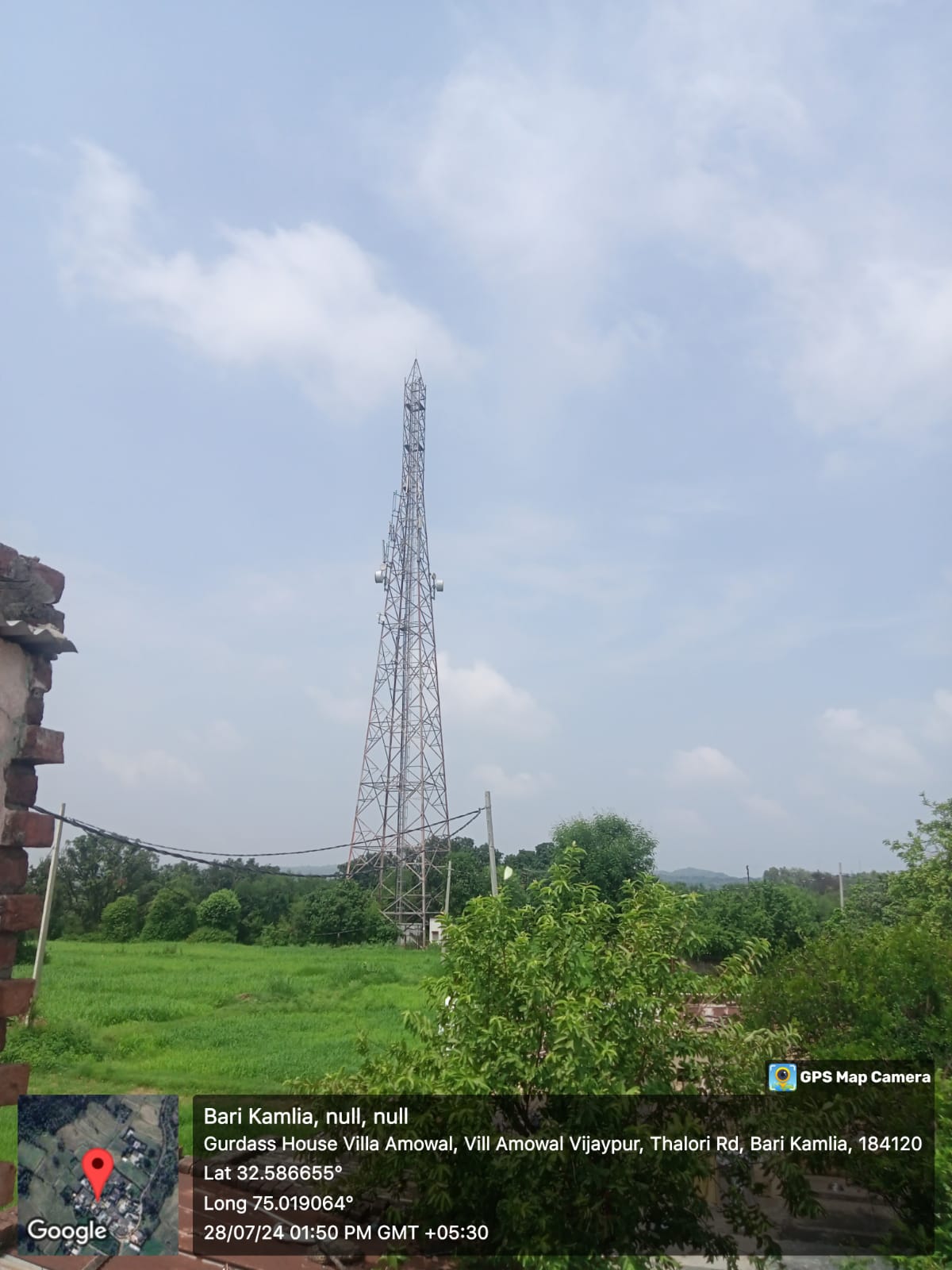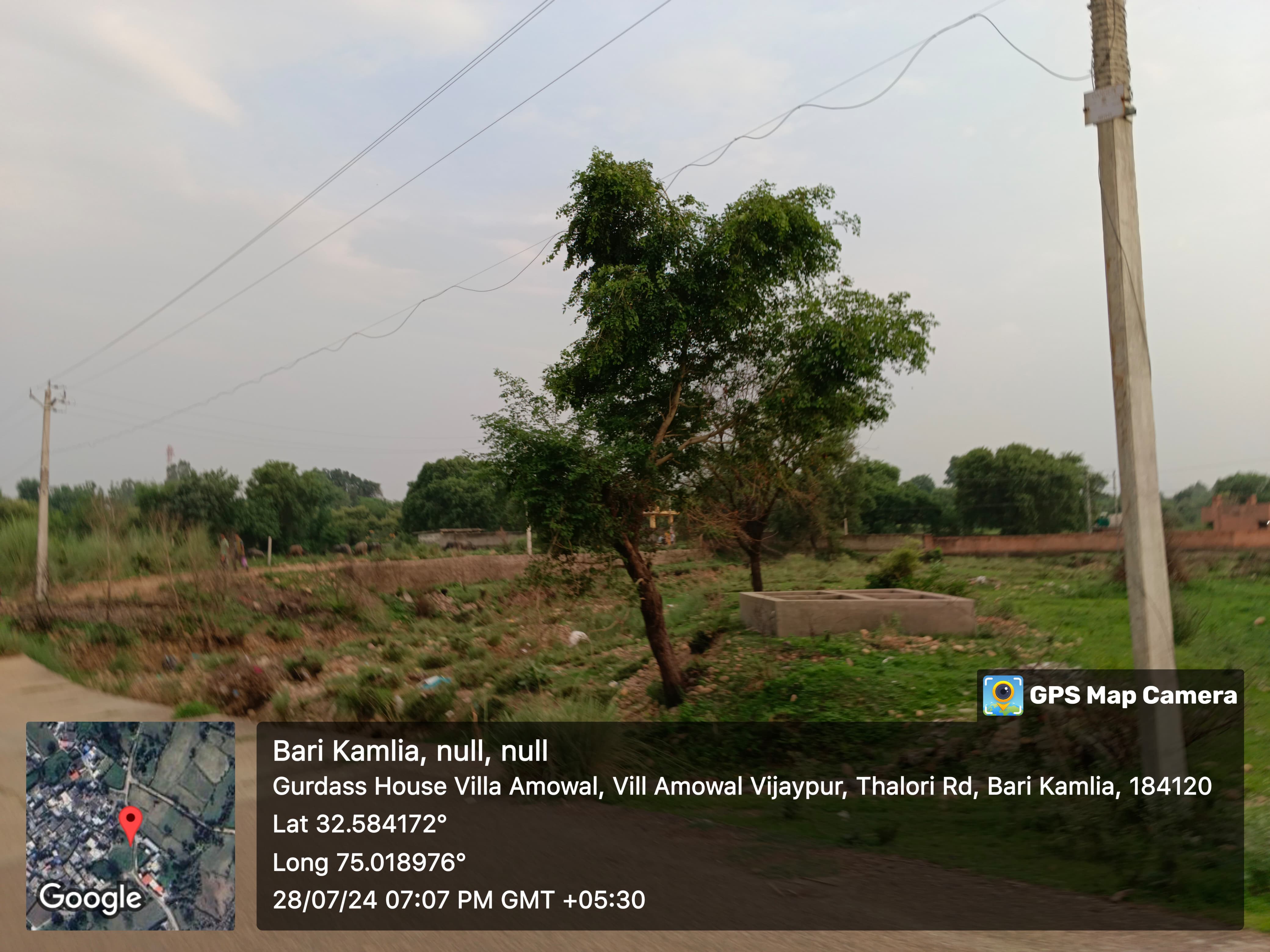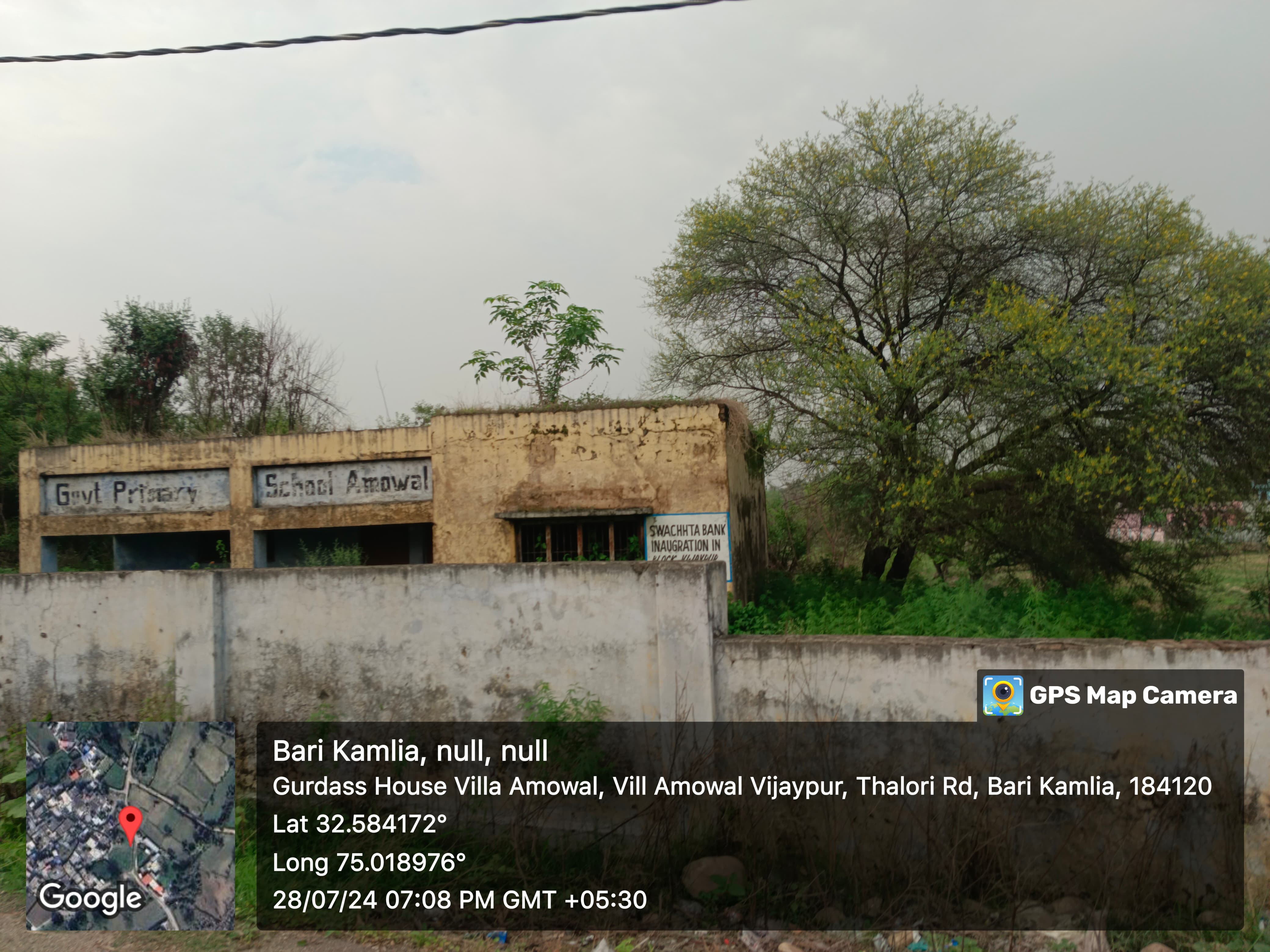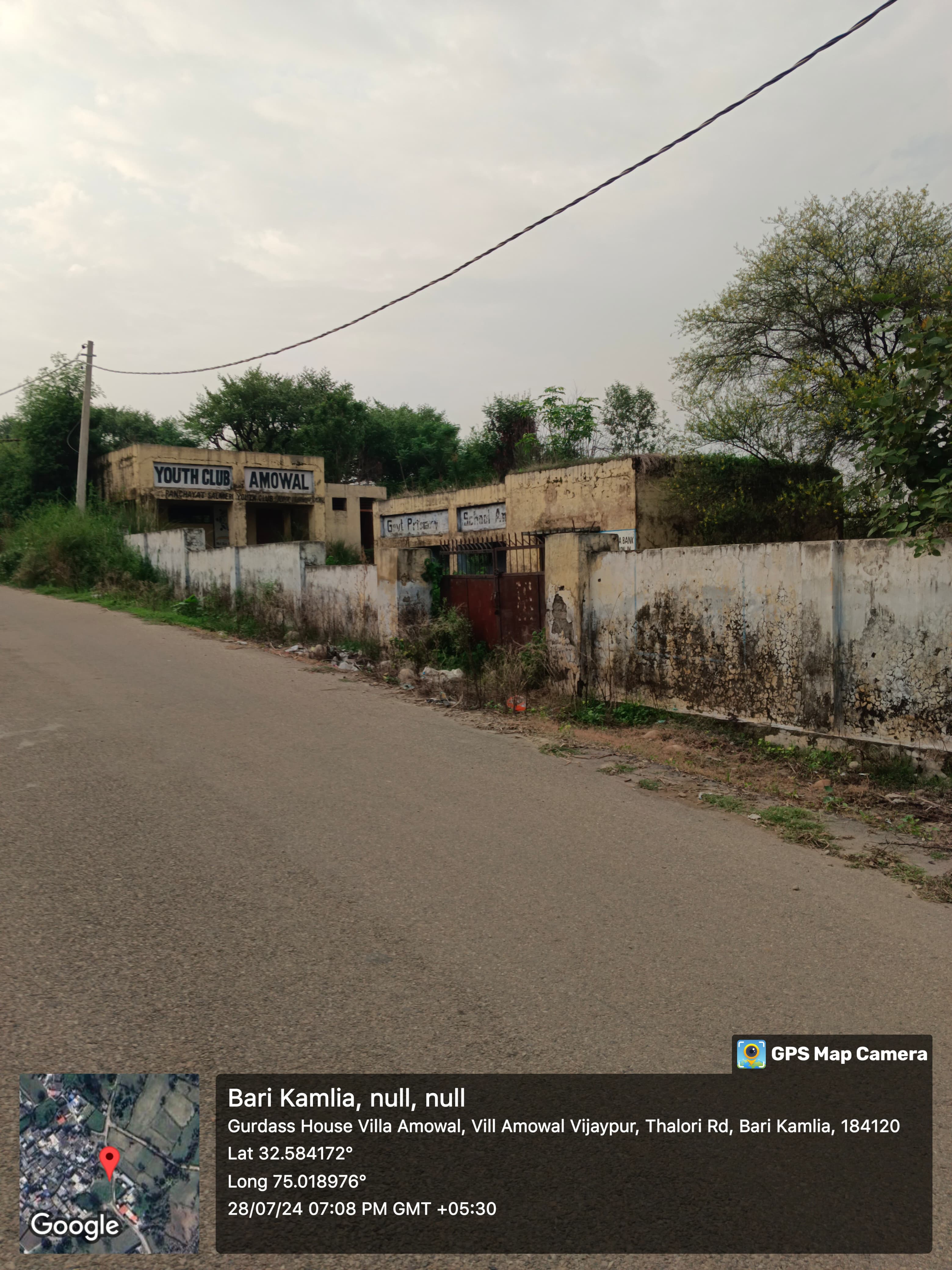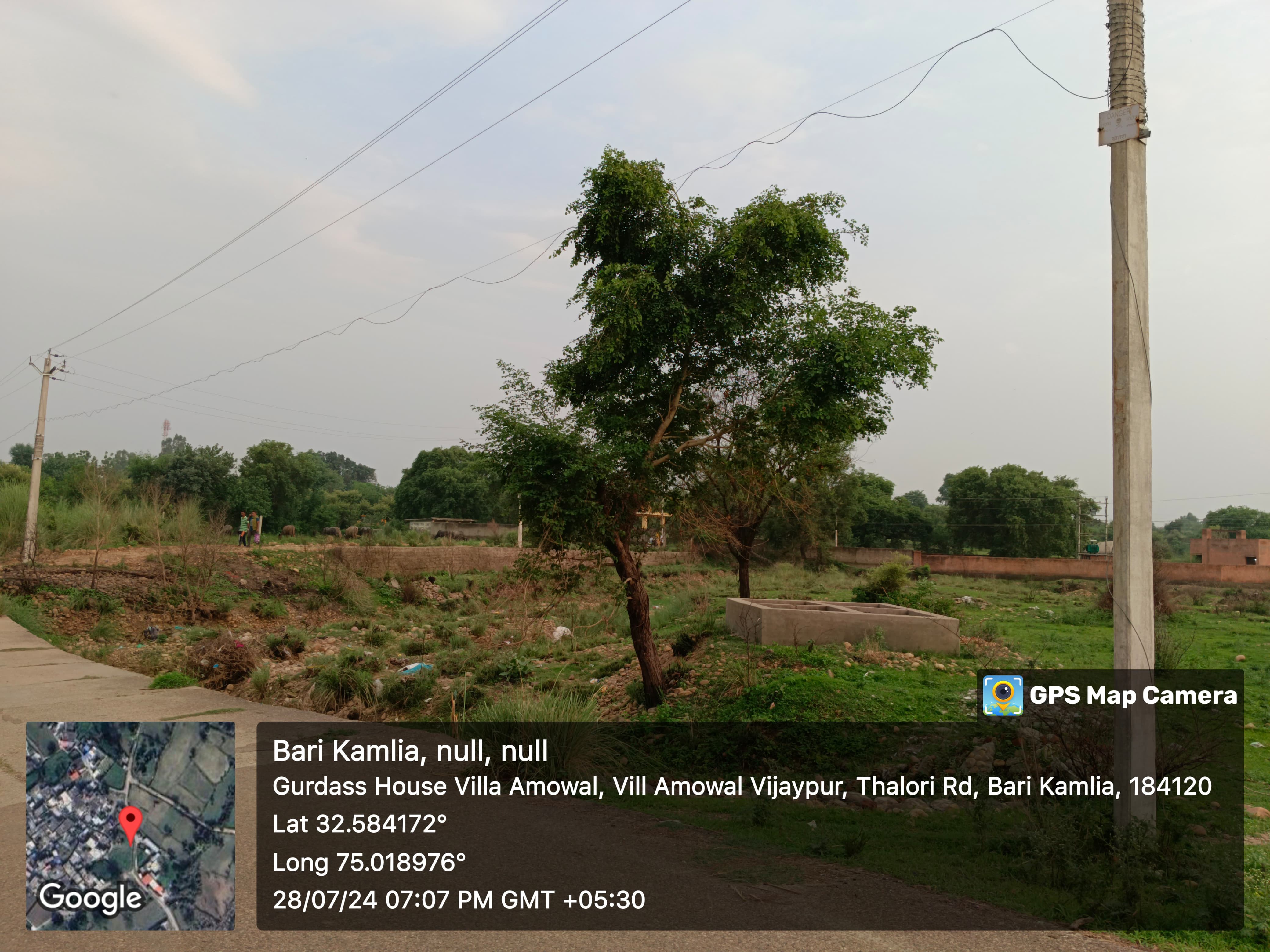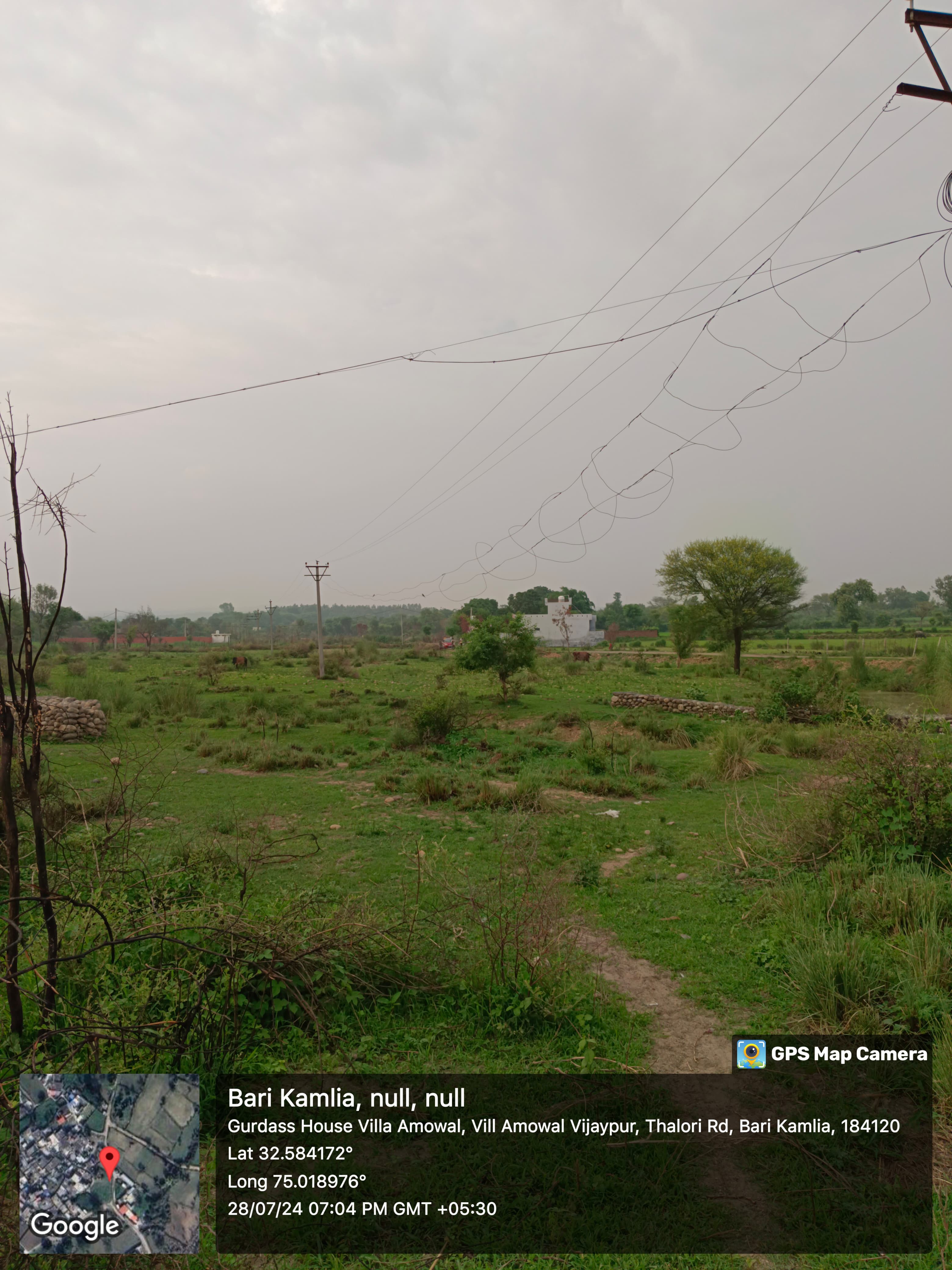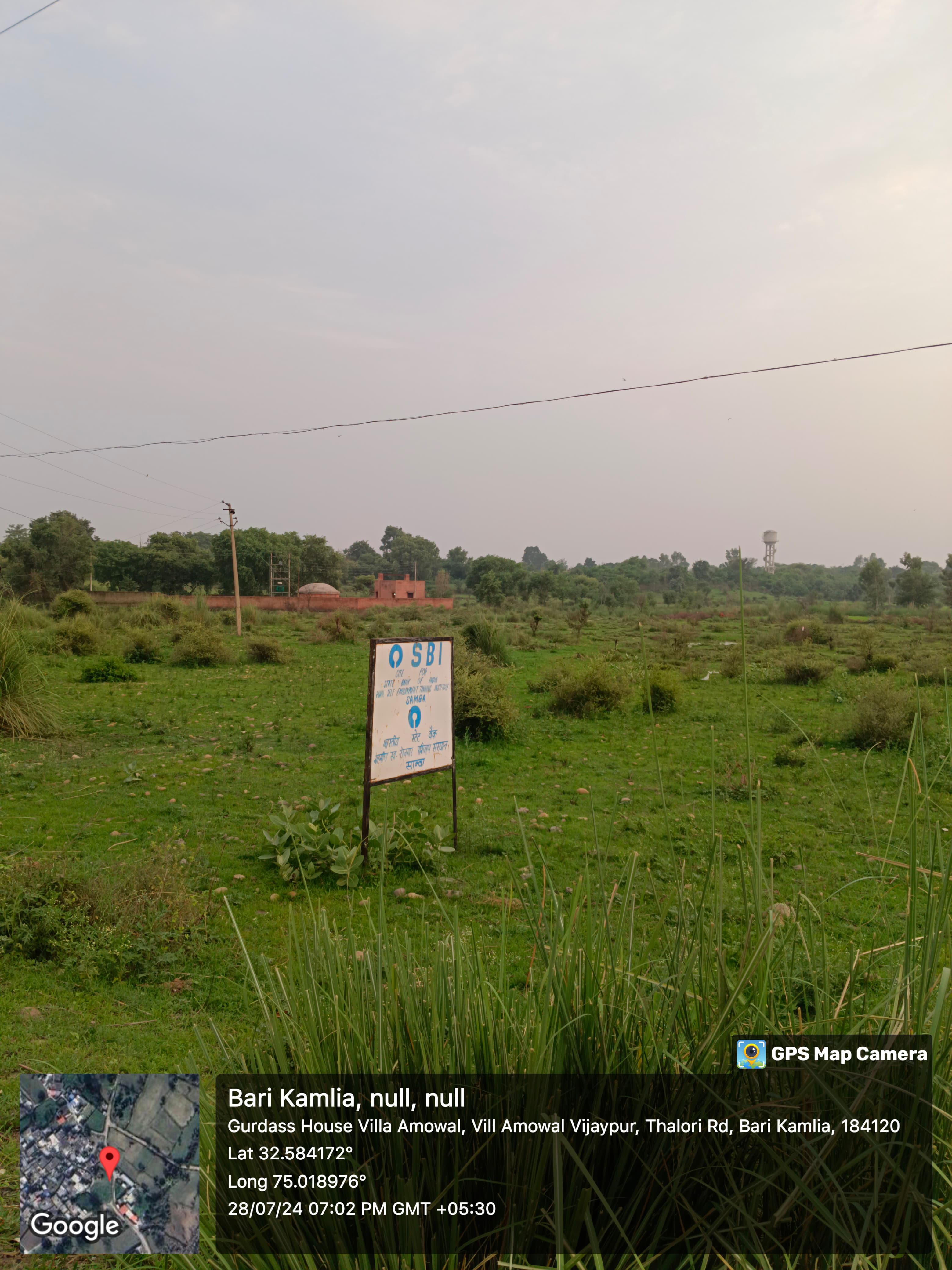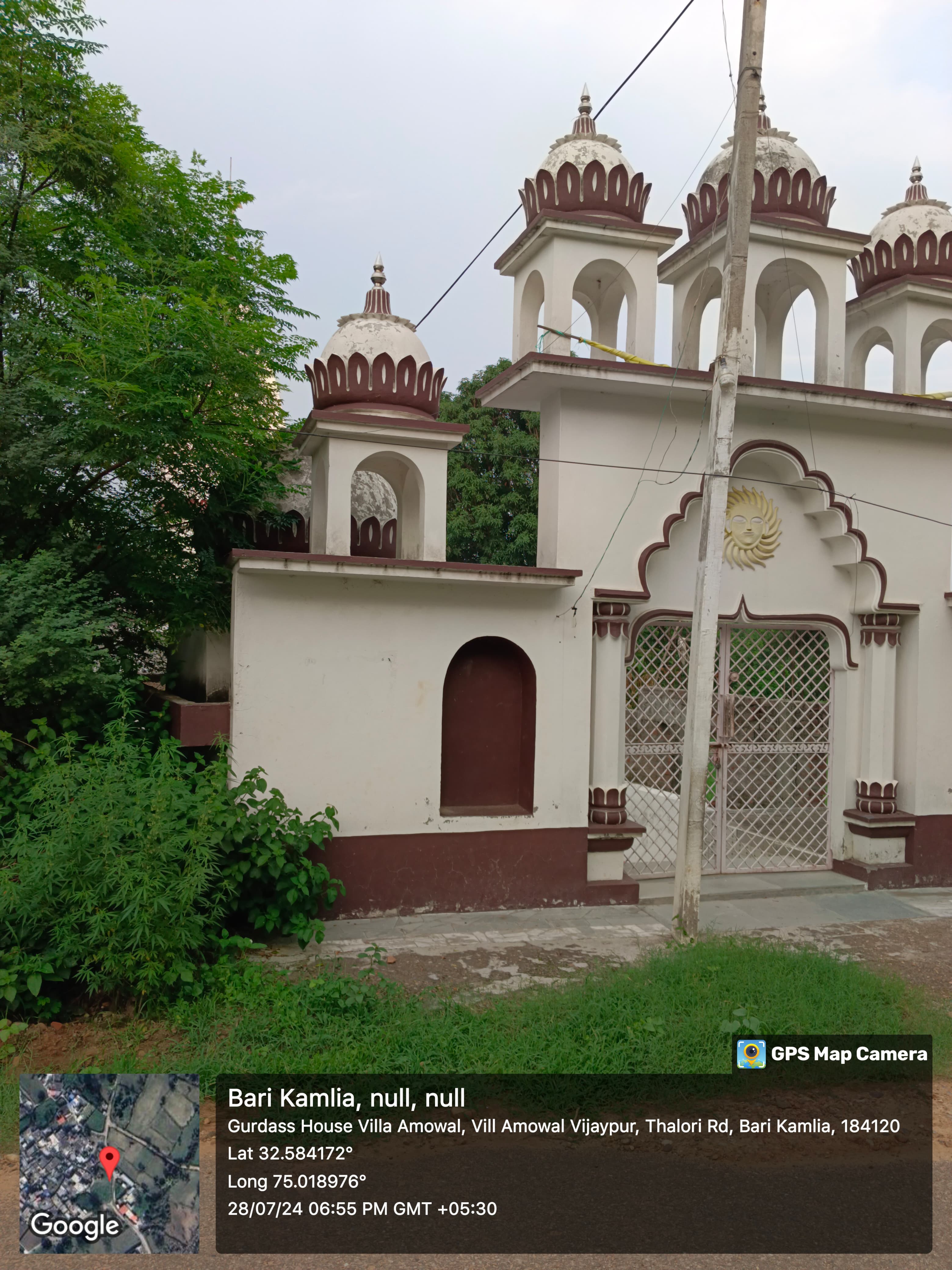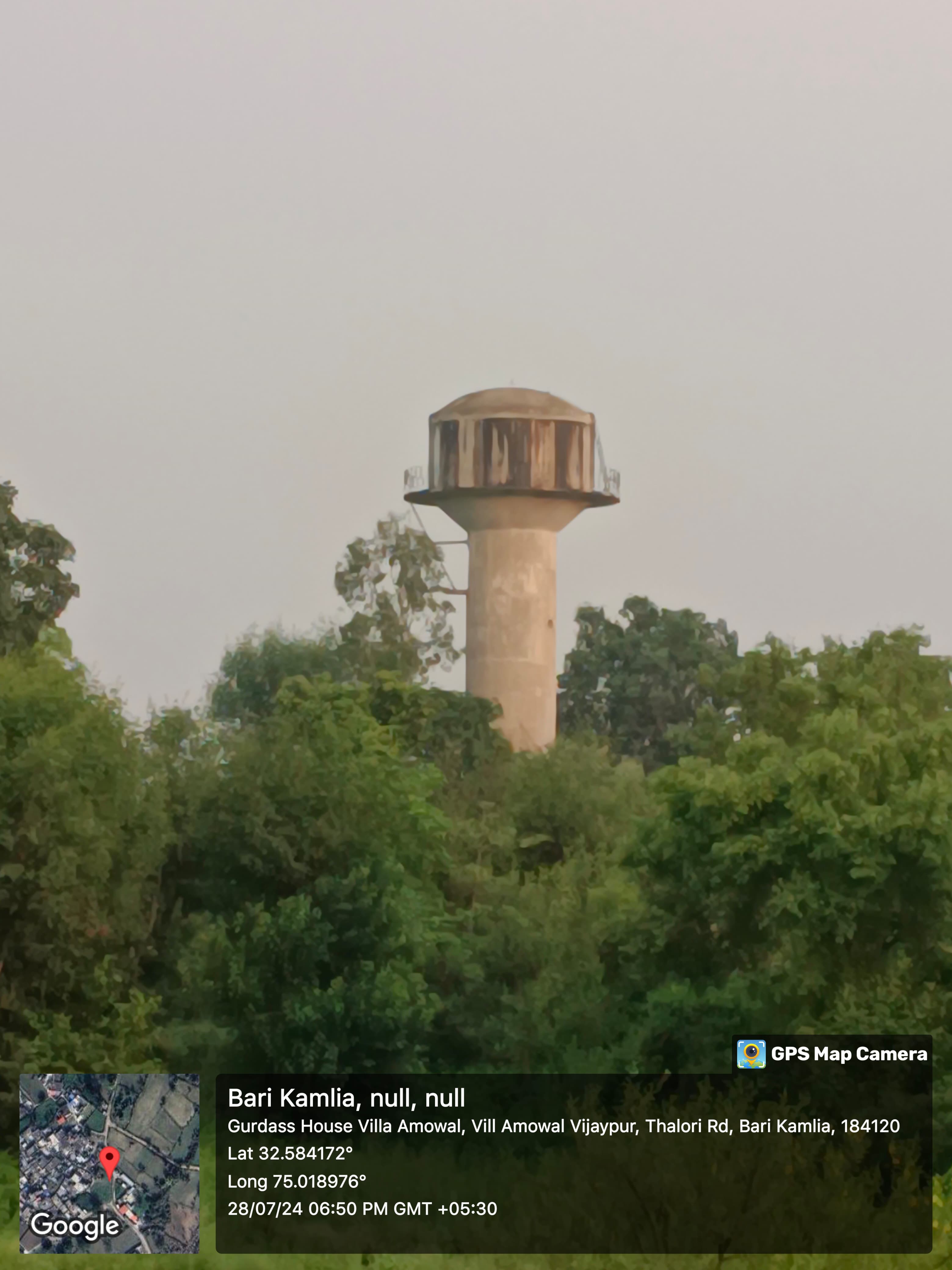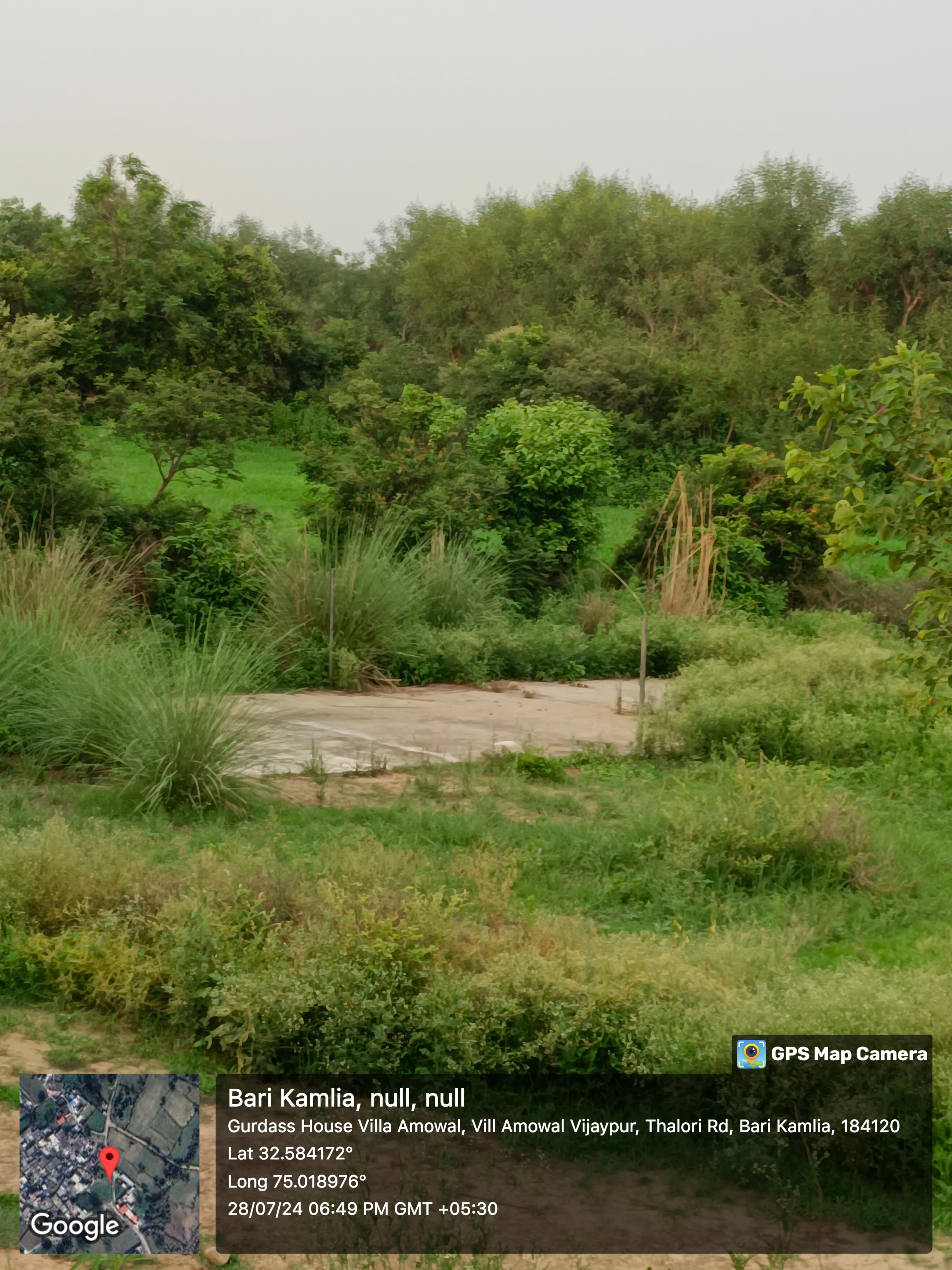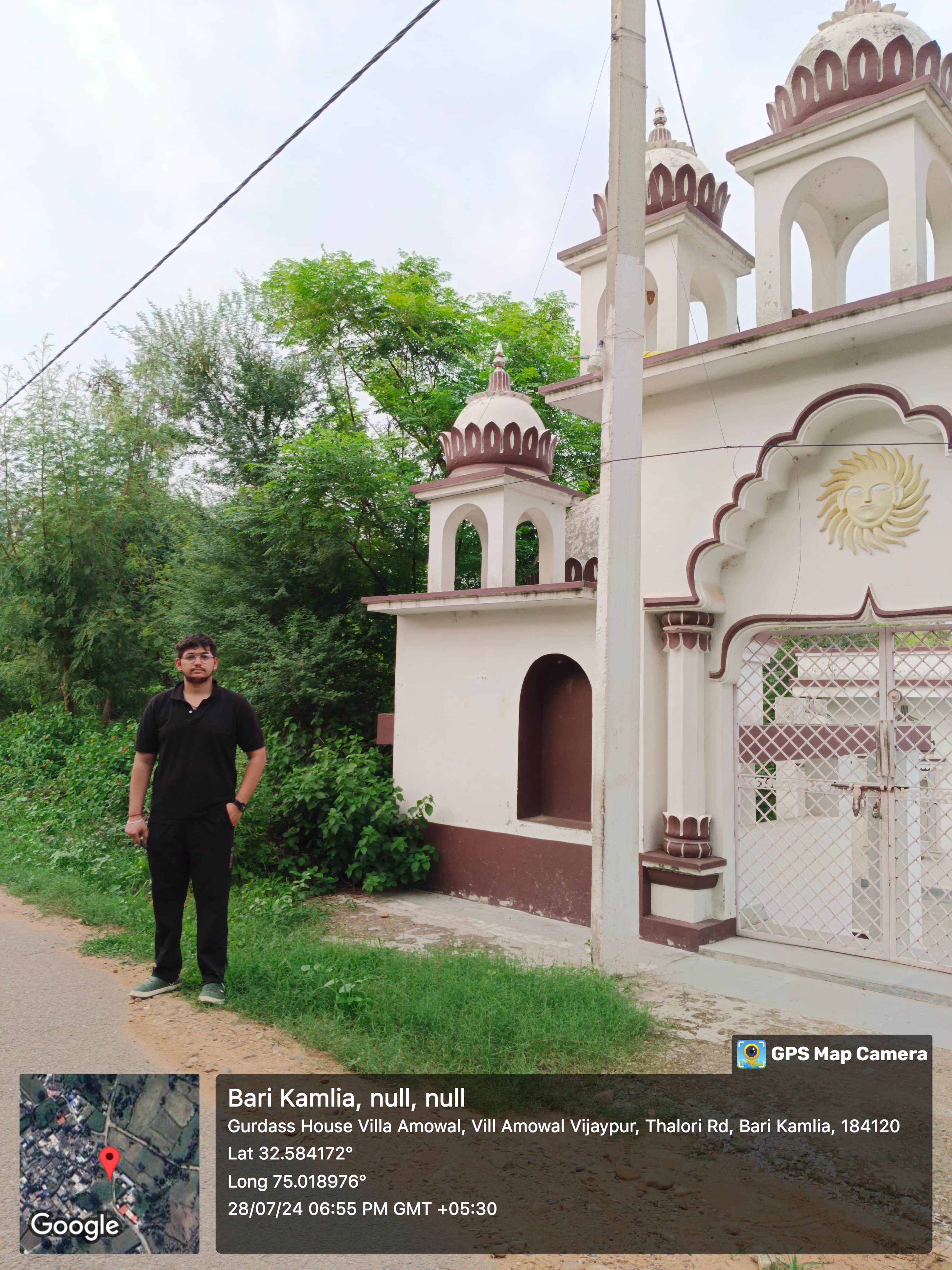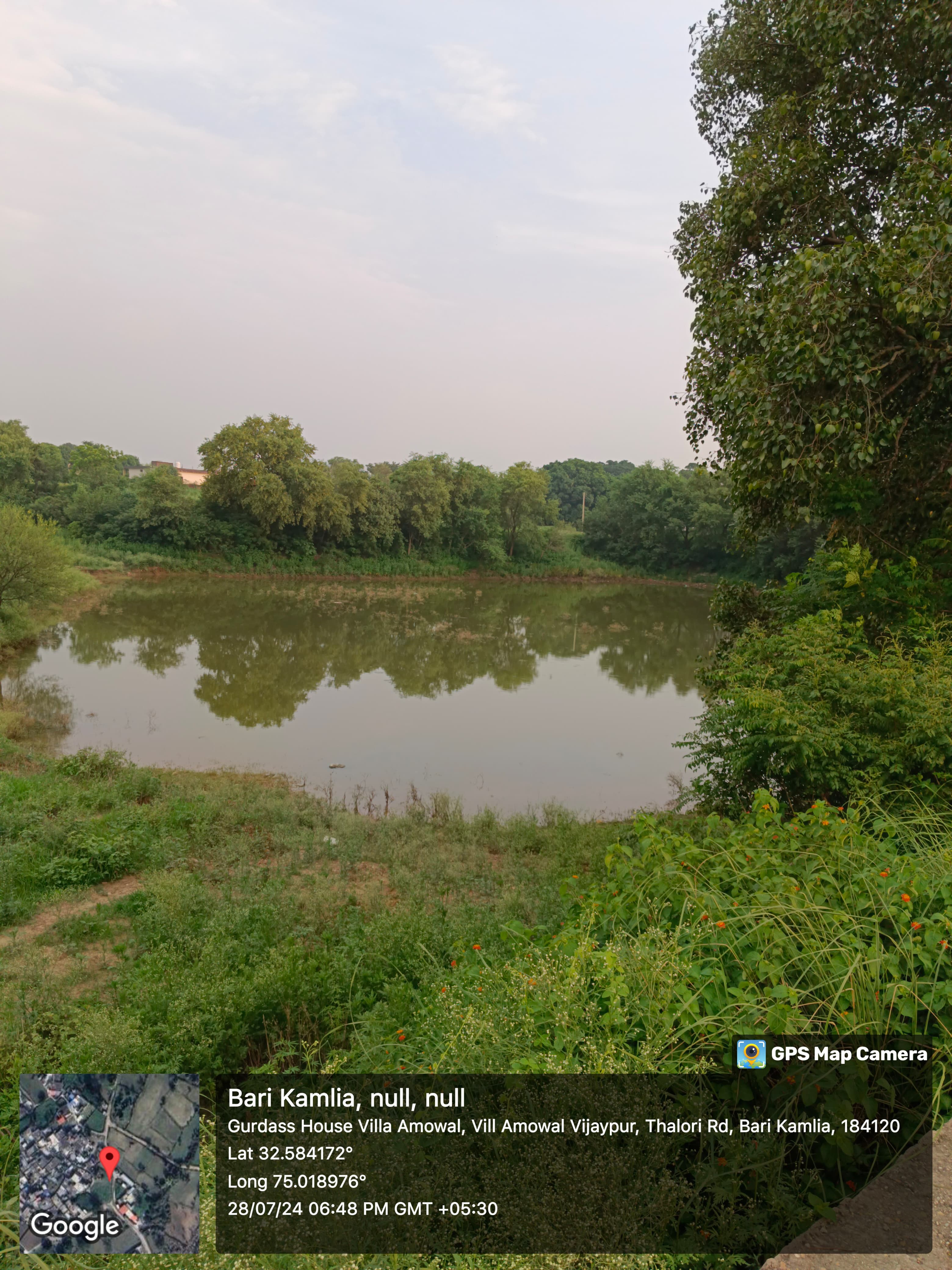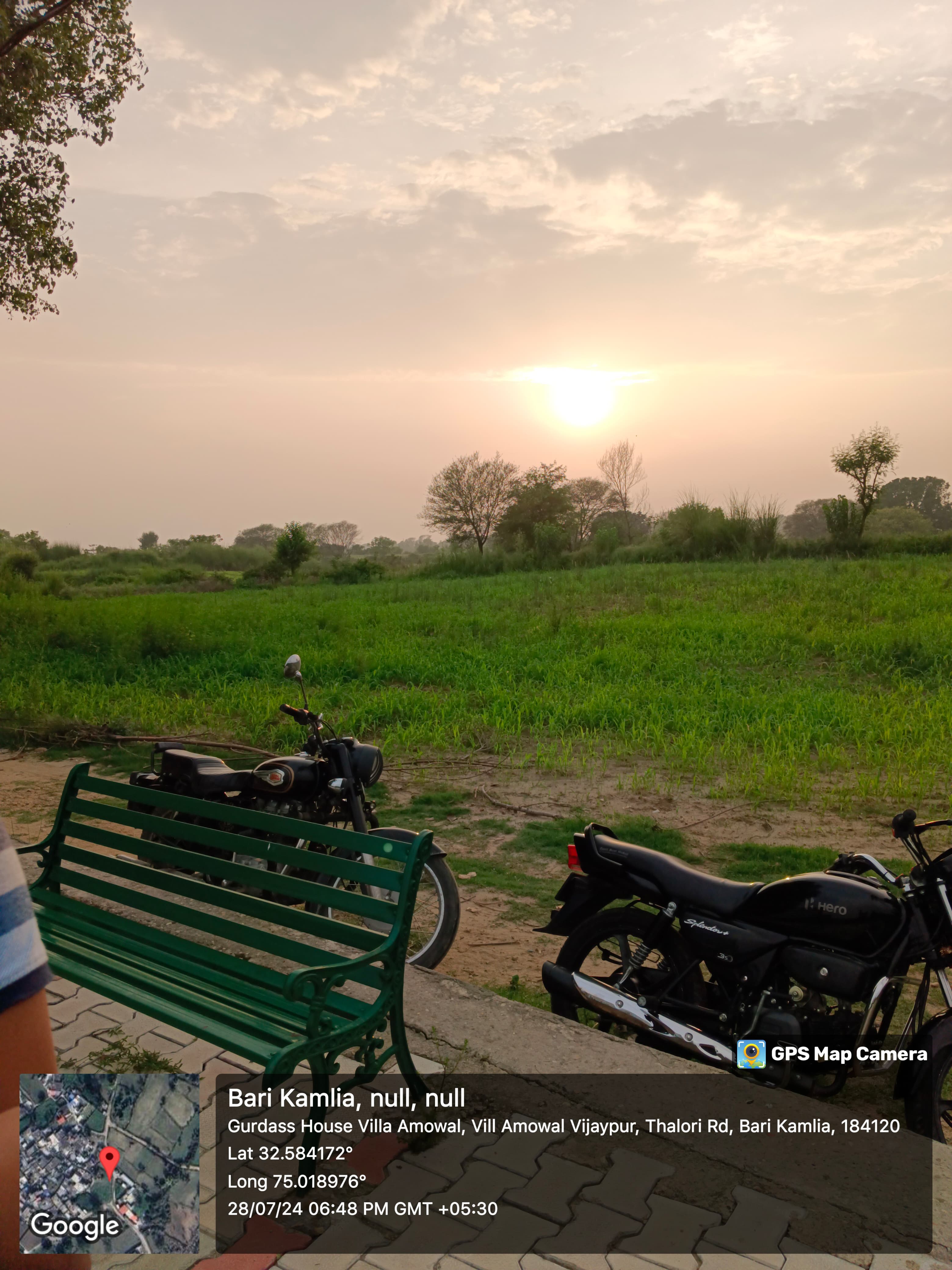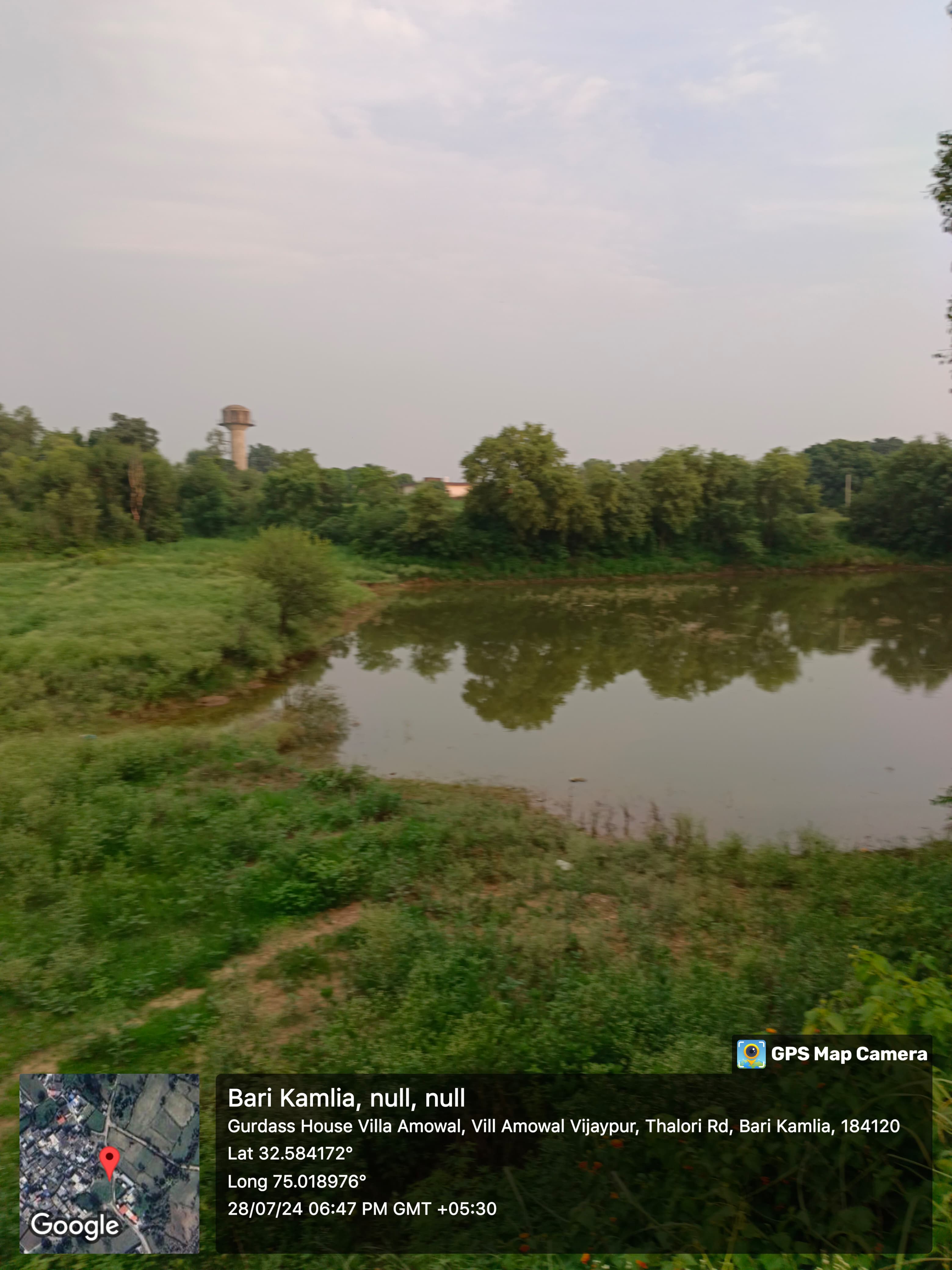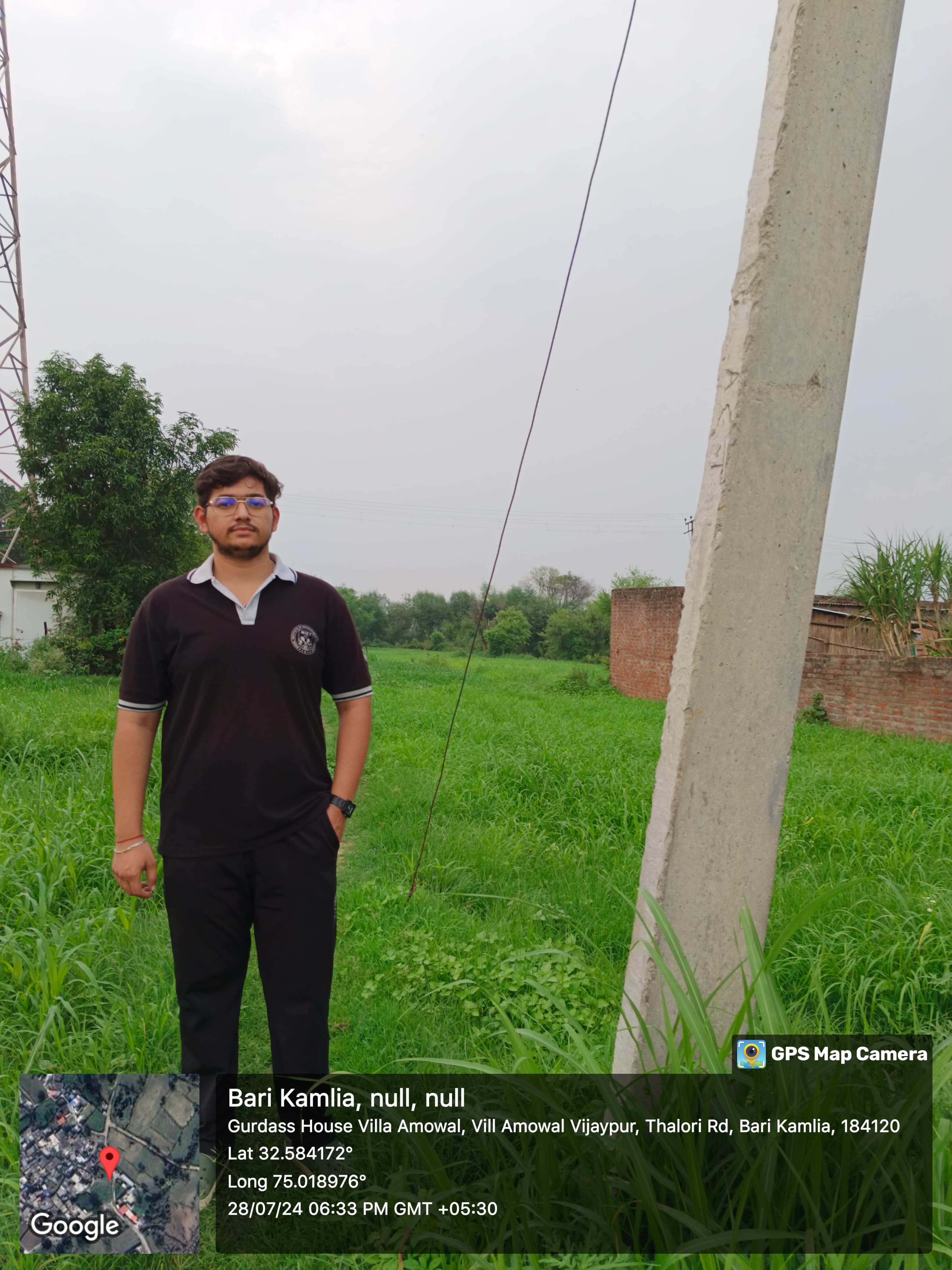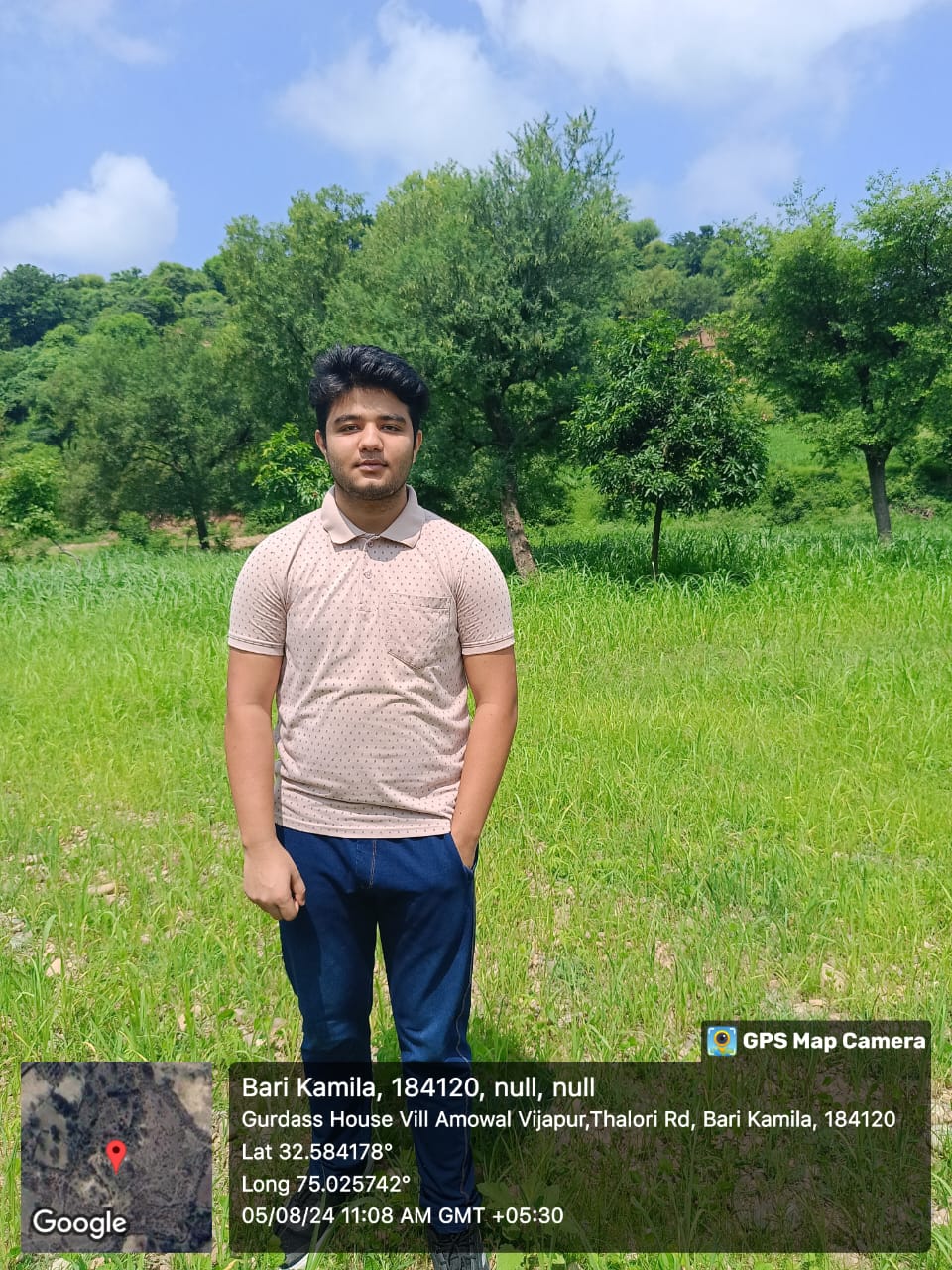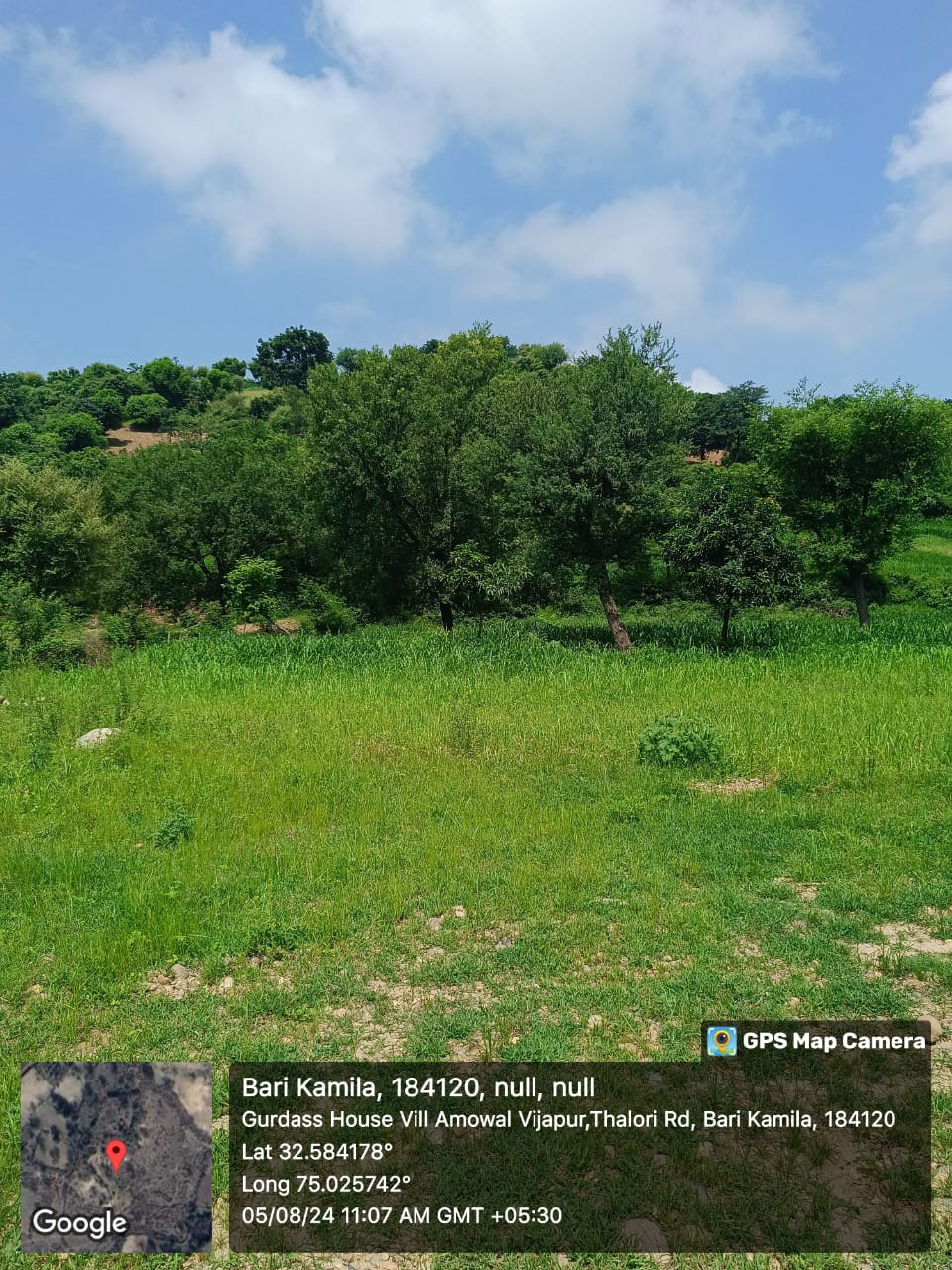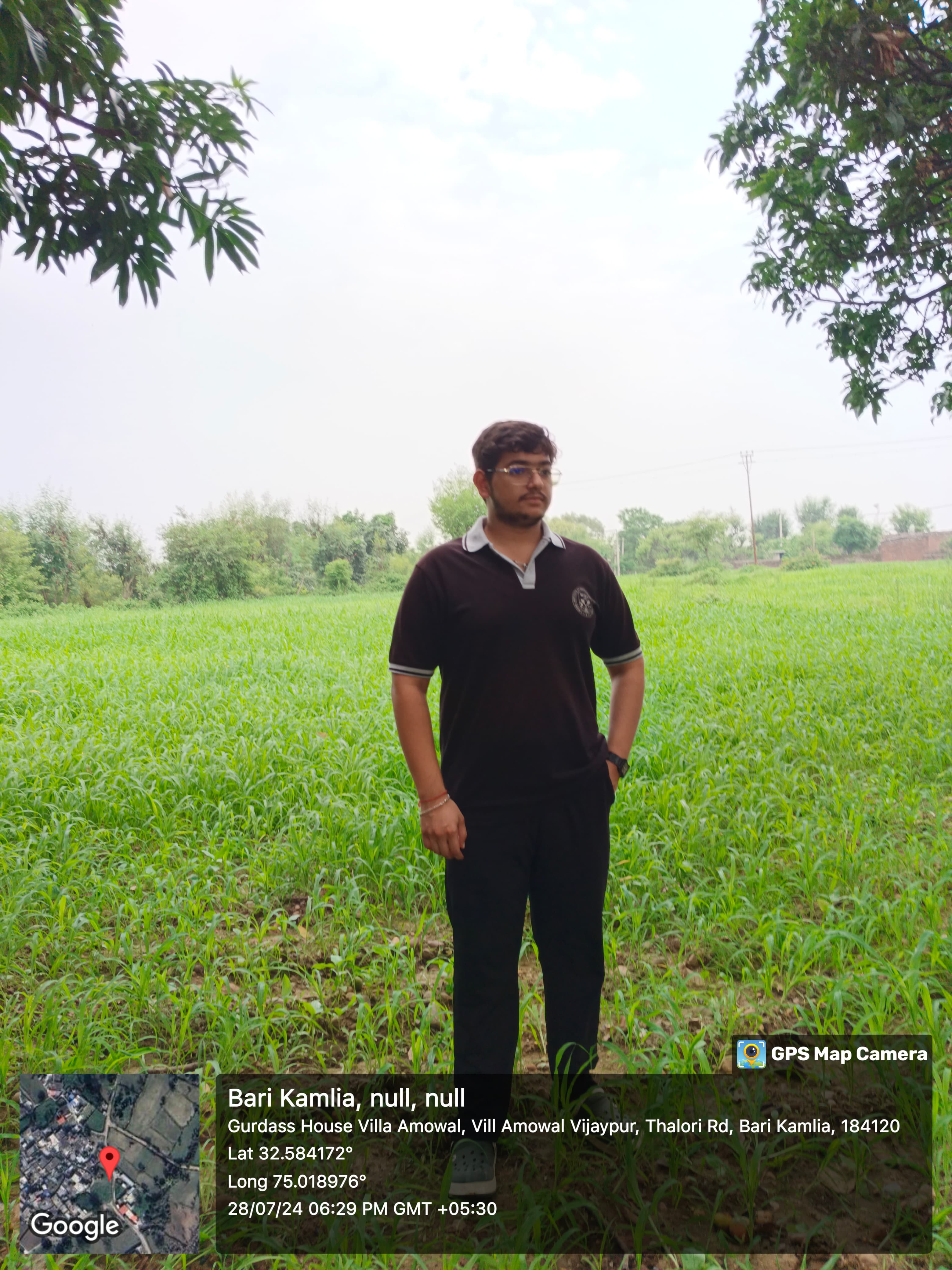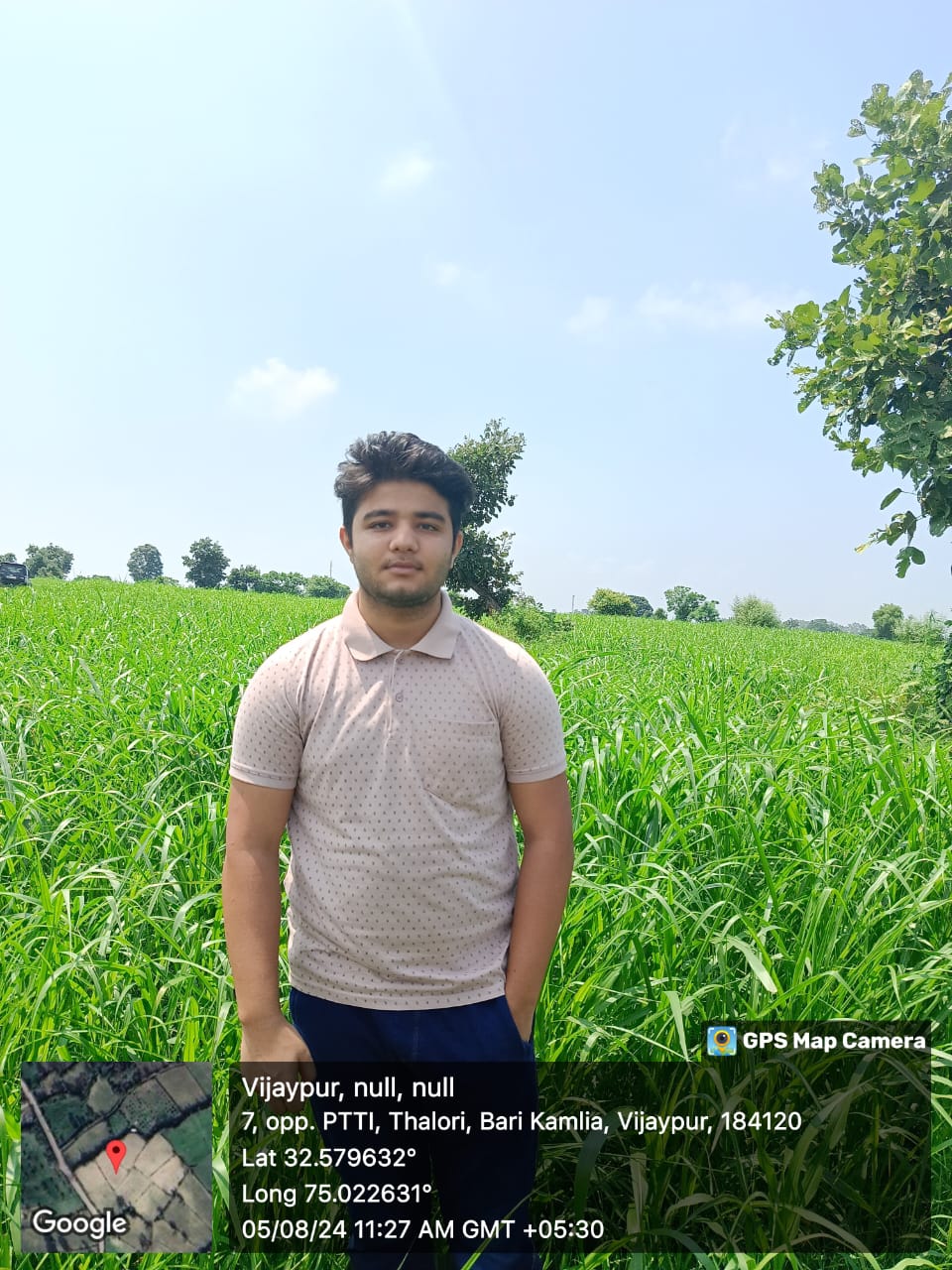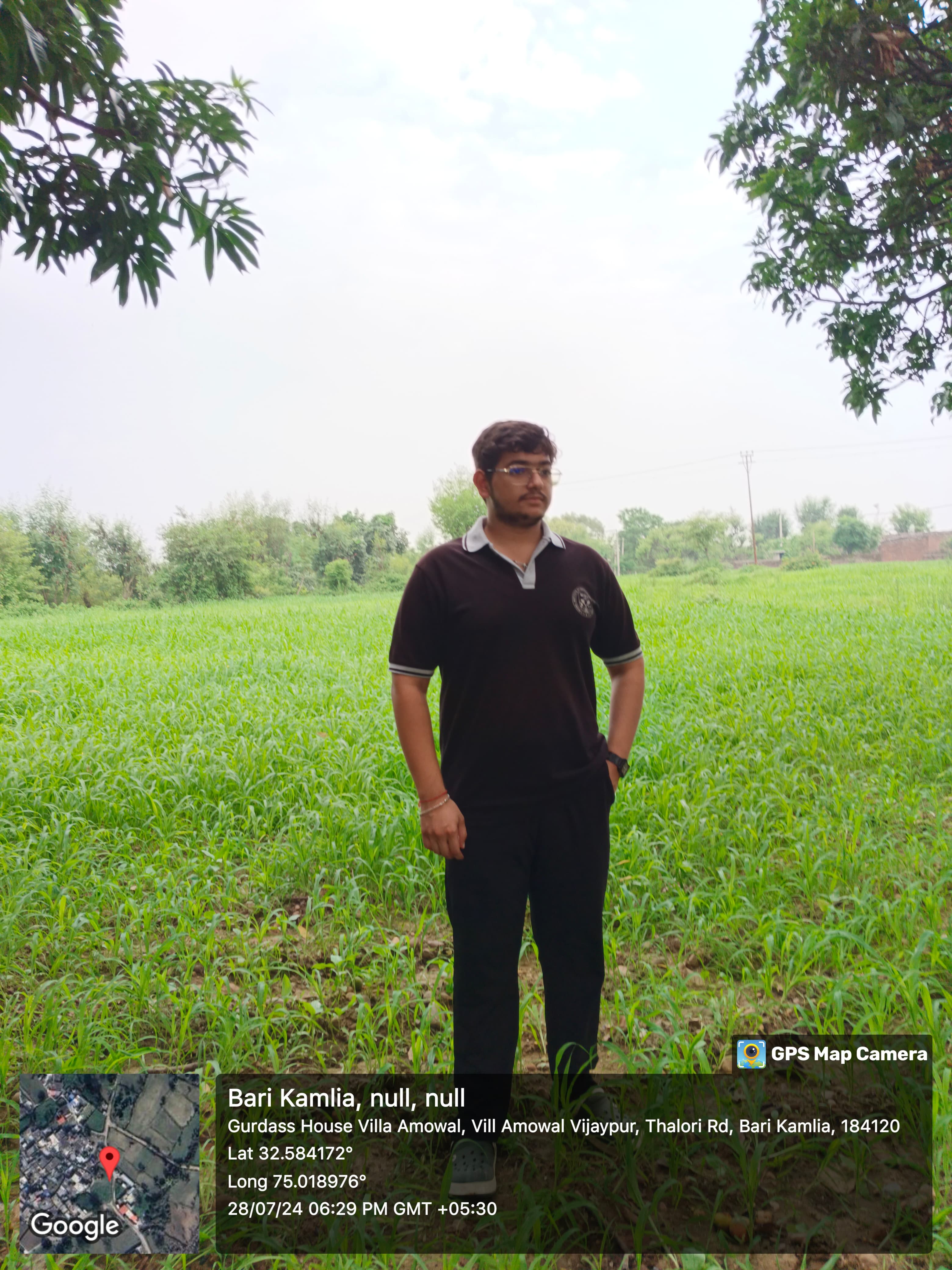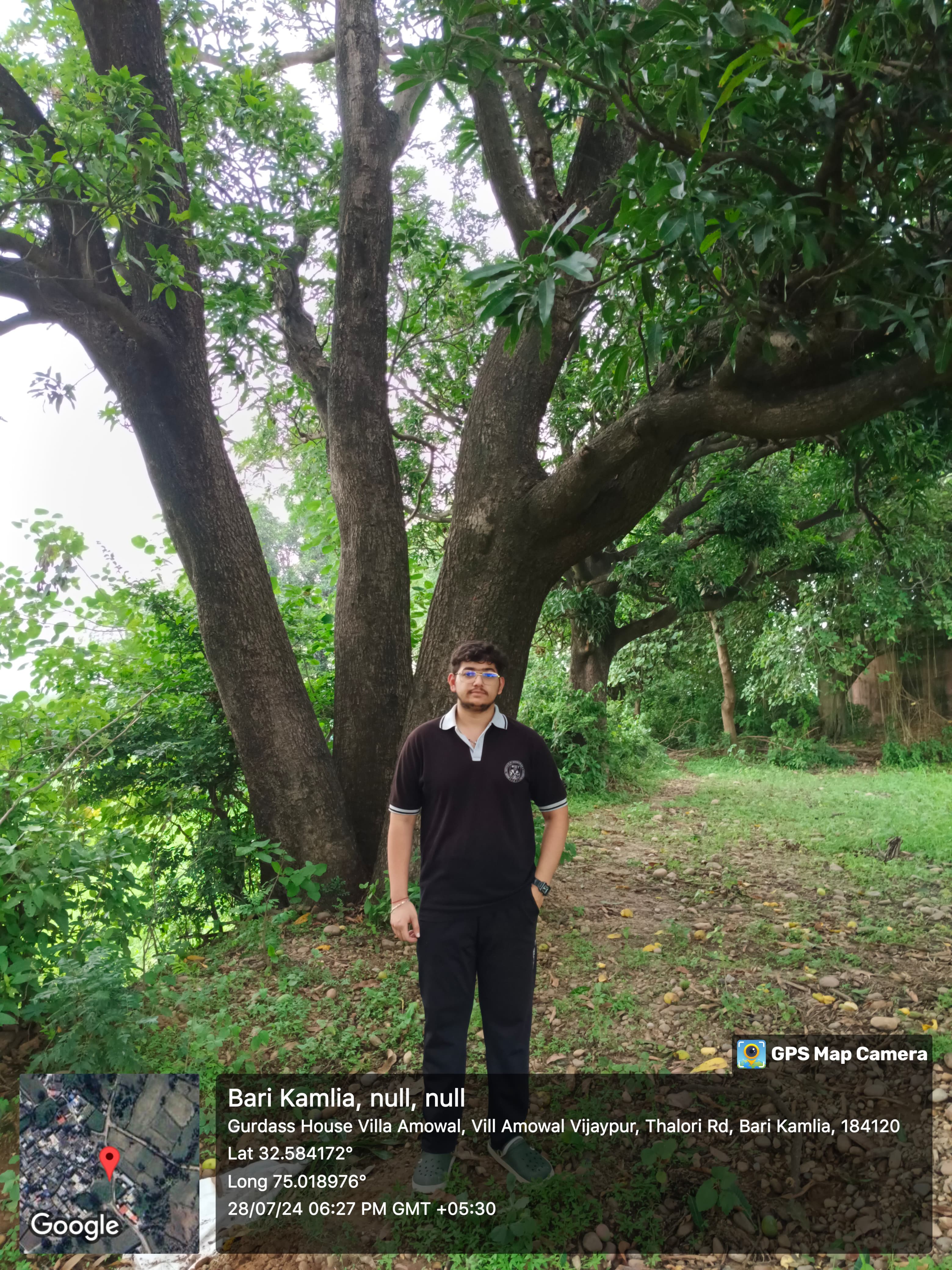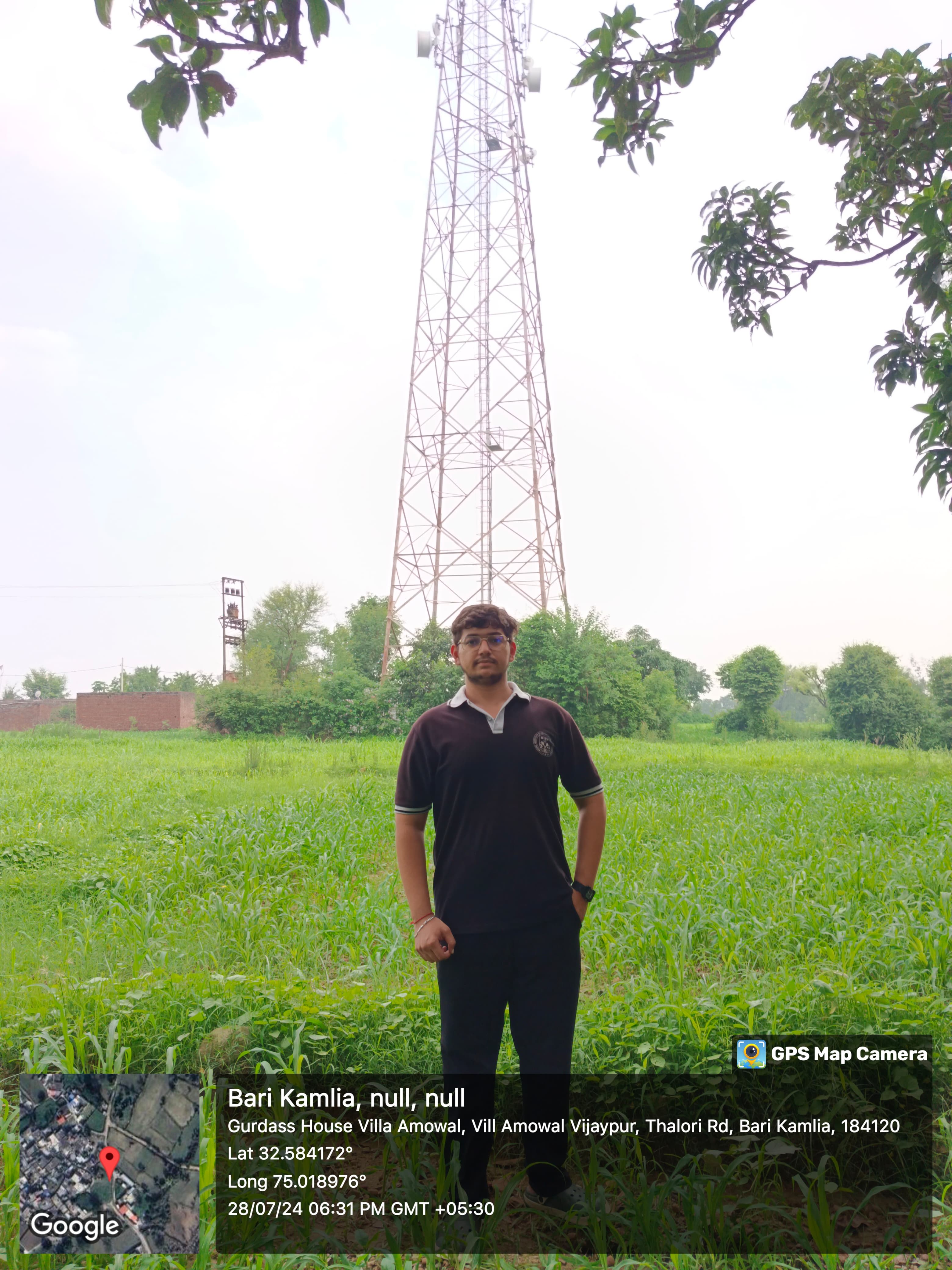Description
Amowal is a quaint and serene village situated in the Vijaypur tehsil of Samba district in the Union Territory of Jammu and Kashmir, India. It lies approximately 30 kilometers from the city of Jammu and is part of the Jammu division. The village is nestled in the foothills of the Shivalik range, offering breathtaking views of the surrounding mountains and lush green fields, characteristic of the agrarian landscape of this region.
Geography and Environment:
The village enjoys a moderate climate, typical of the sub-tropical region of Jammu. Summers are warm but not extreme, while winters are cool, with temperatures occasionally dropping to single digits. The monsoon season brings much-needed rainfall, which supports the village's agricultural activities. Amowal is surrounded by vast farmlands, where crops such as wheat, rice, maize, and mustard are commonly cultivated. The natural beauty of the village is enhanced by its green fields, small water bodies, and proximity to the Shivalik Hills, giving the area a peaceful, pastoral atmosphere.
Economy and Agriculture:
Agriculture is the backbone of Amowal's economy, with the majority of the population involved in farming. Traditional methods of agriculture are still practiced, although modern techniques and equipment have started to make inroads in recent years. Wheat and rice are the staple crops, with mustard and maize being popular during the Rabi and Kharif seasons, respectively. The village also produces vegetables and fruits, which are either consumed locally or sold in nearby markets. Dairy farming is another important economic activity, with many households keeping cows and buffaloes for milk production.
Culture and Lifestyle:
Amowal’s culture is deeply rooted in the Dogra heritage, which is reflected in its language, customs, festivals, and daily life. The primary language spoken in the village is Dogri, although many residents are also fluent in Hindi and Punjabi. The people of Amowal lead a simple yet fulfilling life, with their day-to-day activities centered around farming, animal husbandry, and community gatherings.
Festivals play a significant role in the cultural fabric of the village. Major Hindu festivals such as Diwali, Holi, Baisakhi, and Lohri are celebrated with enthusiasm and communal spirit. Traditional songs and dances, including the famous Dogri folk music, are an integral part of celebrations, particularly during weddings and festivals. The village maintains a rich tradition of hospitality, with families often gathering to share meals and celebrate important events together.
Infrastructure and Development:
Although Amowal is a small, rural village, it has access to basic infrastructure such as roads, electricity, and water supply. The village is connected to Vijaypur and other nearby towns through a network of roads, which have seen improvements in recent years. Vijaypur, located about 7 kilometers away, serves as the main commercial and administrative hub for the village, offering access to markets, healthcare, and education. The villagers regularly travel to Vijaypur to sell their produce, purchase supplies, or access healthcare services.
Education in Amowal is provided by a few primary and secondary schools, with many students traveling to Vijaypur or Samba for higher education. The village has access to healthcare services through a nearby government-run primary health center, while more advanced medical facilities are available in Vijaypur and Samba.
Development efforts in the region are ongoing, with a focus on improving rural infrastructure, healthcare, education, and agricultural productivity. Government schemes aimed at rural development and poverty alleviation have also benefited the village, particularly in the areas of electricity, sanitation, and housing.
Religion and Social Life:
The majority of the population in Amowal practices Hinduism, and the village has a few small temples that serve as spiritual centers for the community. Religious gatherings and festivals are important social events, and the local temple often becomes a hub of activity during major religious celebrations.
Community life in Amowal is close-knit, with a strong emphasis on familial ties and social cohesion. The village follows traditional customs and practices, particularly in matters related to marriage, festivals, and agriculture. Panchayats (village councils) still play an important role in resolving disputes and managing village affairs.
Challenges and Opportunities:
Like many rural villages in India, Amowal faces several challenges, including limited access to advanced healthcare, education, and employment opportunities beyond agriculture. While farming remains the primary occupation, there is a growing interest among the younger generation to seek opportunities in urban areas or diversify into non-agricultural professions.
However, Amowal also benefits from its close proximity to Vijaypur and Samba, which provides better access to urban amenities. Recent government initiatives aimed at rural development, infrastructure improvement, and agricultural modernization are expected to bring positive changes to the village, enhancing the quality of life for its residents. The village’s peaceful environment, combined with gradual modernization, presents opportunities for sustainable development while maintaining its traditional values.
In conclusion, Amowal is a village that exemplifies the rural charm of Jammu and Kashmir, with its rich cultural heritage, agricultural economy, and close-knit community life. While it faces the typical challenges of rural areas, ongoing development efforts hold promise for a brighter future for the people of this tranquil village.
Photos
Videos
Location Map
Contact Information
| Address |
Village Amowal ,(upper mohalla) post office vijaypur tahsil vijaypur district Samba |
| Phone Number |
9103329714 |
| Website | https://jkpanchayat.jk.gov.in/panchayatdataview.php?panchayat=Salmeri&block=Vijaypur |


